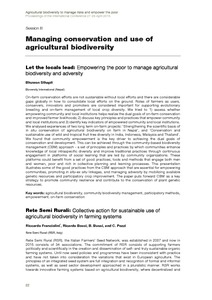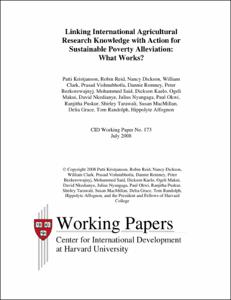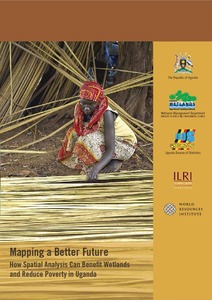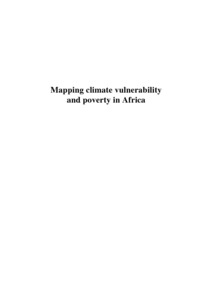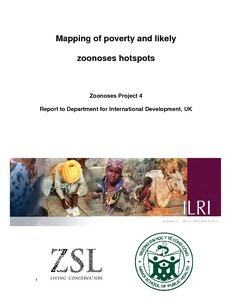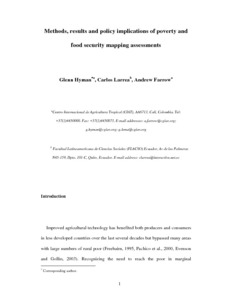Kemiskinan dan desentralisasi di Kutai Barat: dampak otonomi daerah terhadap kesejahteraan Dayak Benuaq
Laporan penelitian ini menyajikan hasil penelitian lapangan yang dilakukan di Kutai Barat, Kalimantan Timur sebagai bagian dari proyek Menjadikan Pemerintah Daerah Lebih Tanggap Terhadap Kemiskinan: Pengembangan Indikator dan Alat untuk Mendukung Pengembangan Penghidupan yang Berkelanjutan dalam Desentralisasi yang didanai CIFORBMZ. Laporan menunjukkan bahwa dampak otonomi daerah terhadap kesejahteraan Dayak Benuaq, masyarakat yang bergantung pada hutan, kelompok mayoritas masyarakat di Kutai Barat.
Livestock - a pathway out of poverty. ILRI's strategy to 2010
This strategy modifies the 10-year plan first published in 2000. Its main focus is to ensure that ILRI's research is directed towards reducing poverty. Both the research and the evaluation of it have become more complex. To clarify its direction ILRI has identified three pathways in which livestock can help the poor more out of poverty, and it has constructed five broad themes by which its research projects and activities will be guided. The strategy outlined in this document reflects the new focus.
Mapping a better future: how spatial analysis can benefit wetlands and reduce poverty in Uganda
This publication presents study carried on Ugandan abundant natural wealth. Its varied wetlands, including grass swamps, mountain bogs, seasonal floodplains, and swamp forests, provide services and products worth hundreds of millions of dollars per year, making them a vital contributor to the national economy. Ugandans use wetlands-;often called the country';s ";granaries for water";-;to sustain their lives and livelihoods. They rely on them for water, construction material, and fuel, and use them for farming, fishing, and to graze livestock.
Mapping climate vulnerability and poverty in Africa
The world’s climate is continuing to change at rates that are projected to be unprecedented in recent human history. Some models are now indicating that the temperature increases to 2100 may be larger than previously estimated in 2001. The impacts of climate change are likely to be considerable in tropical regions. Developing countries are generally considered more vulnerable to the effects of climate change than more developed countries, largely attributed to a low capacity to adapt in the developing world.
Mapping of poverty and likely zoonoses hotspots
The objective of this report is to present data and expert knowledge on poverty and zoonoses hotspots to inform prioritisation of study areas on the transmission of disease in emerging livestock systems in the developing world, where prevention of zoonotic disease might bring greatest benefit to poor people.
Mapping risk and vulnerability hotspots in the COMESA region
Matagalpa, Nicaragua: caminos nuevos para el manejo participativo en la cuenca del río Cálico
Menuju kesejahteraan: pemantauan kemiskinan di Malinau, Indonesia
Poverty is a persistent problem throughout Indonesia. With decentralization, local governments had a new direct role in alleviating poverty and local wellbeing. At the same time they could do so in accordance with local realities and development needs. Yet, there is little improvement in the wellbeing of rural people. Local governments may lack the necessary capacity and experience to reduce poverty effectively. This report shows how a local specific monitoring system can be developed and applied.
Methods, results and policy implications of poverty and food security mapping assessments
The importance of poverty reduction to the world development agenda has motivated greater interest in the geographic dimensions of poverty and food security. This special issue of Food Policy includes examples of poverty and food security mapping used to support policy development in agricultural and rural areas. The volume includes eight country case studies and one cross-country comparison that illustrate advances in our capacity to assess welfare over large areas and at detailed spatial resolutions.


